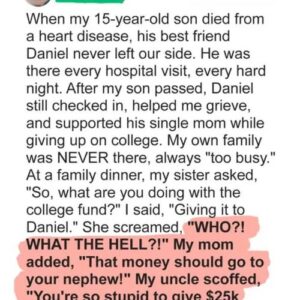Ninety-one-year-old Katrina Esau is the last known speaker of N|uu. Years of colonialism and apartheid had almost wiped out this indigenous South African language. As a young girl, Katrina was told to be ashamed of her native tongue and instead speak Afrikaans. But as an adult, Esau set out to preserve N|uu by founding a school in her hometown Upington and creating a N|uu dictionary.
Protecting an Endangered Language
Despite having two living sisters, Esau has no one to speak her language with, aside from the family members and children she had taught a few phrases. “I miss speaking to someone,” she said. “It doesn’t feel good. You talk, you walk, you know … you miss someone who can just sit with you and speak N|uu with you.”
Her granddaughter, language activist Claudia Snyman, has joined Esau’s campaign to bring back N|uu. They had worked together to open a school to teach the language but it was vandalized during the pandemic, which greatly hurt their progress. “The language isn’t where it’s supposed to be yet. If Ouma [grandmother] dies, then everything dies,” said Snyman in 2023. Her dream is to protect her grandmother’s legacy. “I’ll do anything in my power to help her to prevent this language from dying.”
The History of N|uu
N|uu is a click language dating back to the ǂKhomani people from the southern Kalahari who lived in Southern Africa before the arrival of European colonizers. They are a part of the San people who were one of the earliest known hunter-gatherers in that area. During the British occupation in the 19th century, the people were stripped of their ethnic and cultural identity, including their language. In fact, people were mocked, beaten, and even murdered for using N|uu. This endangered the language, almost erasing it completely.
Although N|uu has evolved with time, like any other language, it retains great significance from a history and culture that has almost been forgotten.
“During colonialism and apartheid, Ouma Katrina and other (indigenous) groups were not allowed to speak their languages, their languages were frowned upon, and that is how we got to the point where we are with minimal speakers,” said Lorato Mokwena, a linguist from South Africa’s University of the Western Cape. “It’s important that while Ouma Katrina is around, that we do the best that we can to preserve the language and to document it.”
The Click Language
N|uu is called a click language because of its unique click sounds. In fact, one primary click exists in very few languages. Linguists call the sound a “bilabial plosive” or in layman’s terms: “a kiss click”. Because this tongue was primarily spoken and not written, there is little documentation, making it difficult to track it historically and discover more about it.
The Last N|uu Speaker
Unfortunately, languages die every year, and bits of history and culture die with them. Although this slow extinction is inevitable in the modern world, it depletes society of a certain richness. After all, it’s not just a way of speaking; language reflects how people think, feel, express themselves, and see the world around them. It’s a core part of identity.
“There are these codes that we use to communicate and we label these codes ‘languages.’ Your experience with one code or another code is the structure that creates your reality. That is fascinating,” Dr. Jones said. “Because of globalization, we are losing access to these codes. That’s such a loss. It’s the same as saying ‘Well, why give a sh*t about animals and plants that are going extinct?’ It’s because it’s part of a bigger network – it’s important.”





